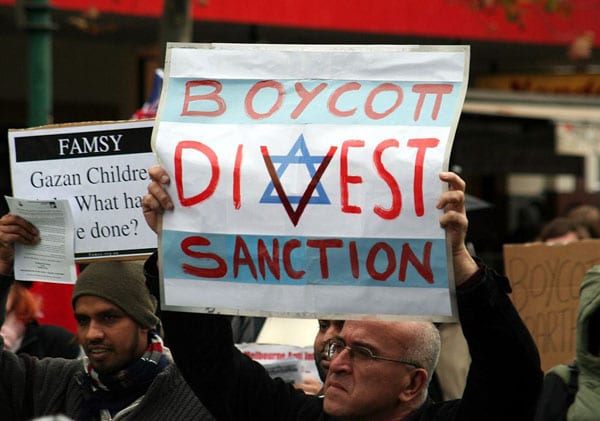
February 22, 2019; Forward, St. Louis Post Dispatch, and St. Louis Jewish Light
When politics becomes personal, strong positions become harder to defend, and it becomes necessary to recognize how complicated the world is. For many Jewish nonprofits, managing the divide between those who strongly support and those who strongly oppose Israel’s current policies has gotten a lot harder. Now that it’s become so personal, has it produced a wider dialogue?
The political debate over American and Israeli policy toward a solution to the conflict over a Palestinian state has gotten louder. Now, even members of Congress have been heard to call for the use of Boycotts, Divestment, and Sanctions (BDS) as pressure tactics. But, as critics of current Israeli policy grow more vocal and more successful in getting their message onto the American agenda, many nonprofit organizations have increased their advocacy efforts in support of current Israeli policy and have tried to demonize and ostracize BDS and its supporters. Organizations that have taken positions opposing the status quo in the Middle East, like Jewish Voice for Peace and IfNotNow, have been isolated and kept outside the network of Jewish nonprofit organizations. This ostracizing reflects a desire to keep the heated debate going on in general society outside their walls.
Some have decided, as NPQ reported in January, that just controlling the internal conversation wasn’t enough; they have called for pro-Israel advocates to “out” Israel’s critics and “frame them…as anti-peace, anti-Semitic, or dishonest purveyors of double standards.” This strategy was central to the development of Canary Mission, a nonprofit which in 2015 created a web-based effort to “document people and groups that promote hatred of the USA, Israel, and Jews on North American college campuses’ and publish a list of students, professors, and organizations it believes are spreading anti-Israel and anti-Semitic ideologies.”
Now, the canary has bit the community they claim to serve. A young woman who, along with her family, is an active member of the St. Louis Jewish community learned that her political opinions had left her marked by Canary Mission as one to be shunned. As reported by the St. Louis Post-Dispatch, she found “her photo and personal information among dossiers on student activists, professors and organizations that support Palestinian rights. The site claims to have sent names of listed students to prospective employers. The blacklist is designed to intimidate students and faculty members and prevent them from criticizing American policies about Israel.”
For the Jewish Community Relations Council of St. Louis (JCRC), which does not presently include any organization that forcefully challenges Israel’s ongoing occupation among its membership or sponsors the kind of protests this young woman had been a part of, this crossed a line. In a response, JCRC stated, “While we advocate strongly for a safe, secure and democratic state of Israel, we unequivocally reject anyone who seeks to shut down discussion and disagreement about the Jewish state through intimidation tactics.”
Sign up for our free newsletters
Subscribe to NPQ's newsletters to have our top stories delivered directly to your inbox.
By signing up, you agree to our privacy policy and terms of use, and to receive messages from NPQ and our partners.
Going further in comments reported by the St. Louis Jewish Light, the Council’s executive director, Maharat Rori Picker Neiss, explained the organization’s decision to respond:
This is a member of our St. Louis Jewish community. We have been hearing from people in the community who feel that all voices on Israel are not equally welcome, and we know that if this were a situation of someone being in any way antagonized or called out because they have openly expressed pro-Israel views, our community would rally to support that person.
[…]
This isn’t about whether or not we agree with a person’s opinions but about people’s rights to express those opinions and know that our community is stronger because of the diversity of opinions.
NPQ has worried about the continued use of Canary Mission–like tactics to intimidate and to stifle opinions. The larger question is whether this young woman and others like her will be included in the community’s dialogue about a difficult issue. Will she, and those who agree with her about Palestinian civil and legal rights, be welcomed into the conversation, or allowed to be present when the nonprofits that represent them debate their advocacy agenda? In these divisive times, issues of inclusivity and who is “in the room” are not problems for just Jewish nonprofits. Women’s reproductive rights, voting rights, income redistribution, and addressing the implications of white entitlement are just some of the matters that inflame the passions. Organizations that claim to serve and represent broad communities, and whose work touches on these things, must deal with whether and how they will encourage or deny heated debate. As in St. Louis, it’s hard not to see the need to open the doors and deal with the challenge of the personal.—Martin Levine













